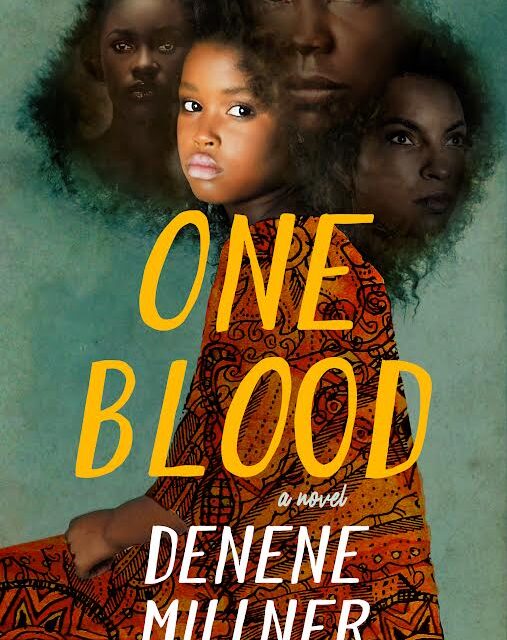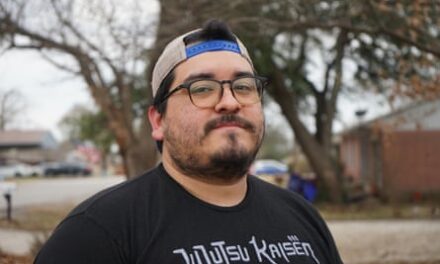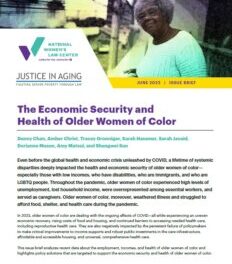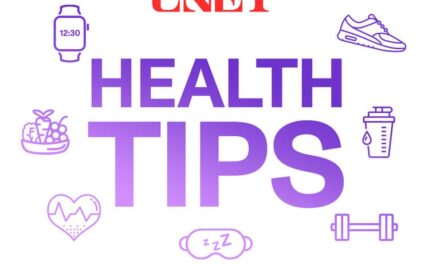Denene Millner’s One Blood is a heroine’s journey, one traveled across time, across generations of three women connected by birth, by blood and by love. It’s a story about the mothers who bring us into the world, the mothers who raise us and the women we become as a result of their choices. It is a story of reckonings and redemption.
One Blood (Forge Books) is also a tale rooted deeply in Millner’s personal history. A child of adoption, Millner spent much of her life not knowing the details of her own origin story. Bringing the characters of Grace, LoLo and Rae to life on the page helped Millner exorcise questions she had about her own beginnings. It helped her confront the ghosts of an unknown past and became a way of communing with her maternal ancestors. One Blood also became a kind of a map, eventually leading Millner to her birth mother, whose identity she discovered during her research for the book.
Millner is an Atlanta-based, New York Times bestselling author, journalist and podcaster, director of Simon & Schuster imprint, Denene Millner Books, and co-author of the 2019 children’s book, The Fresh Princess, with Will Smith.
She recently spoke to ArtsATL about writing her first solo adult novel, about the power of matrilineal legacies, the beauty of Black motherhood and the life-changing magic of finding ourselves on the page.
ArtsATL: You’ve described books as “the most remarkable form of entertainment on the planet.” What did books give to you as a child?
Denene Millner: Books were everything to me.
I would walk to the library at least once per week. It was about a mile-and-a-half from the house, and I would have stacks [of books] in my backpack and come home and read them. My parents didn’t have a whole lot of money to actually buy books, but I do remember my mom buying me The Little Princess and The Secret Garden. I kept them on my shelf in my closet, and they were my favorites.
My mom was a reader as well. I grew up watching her and emulating her and really loving the written word.
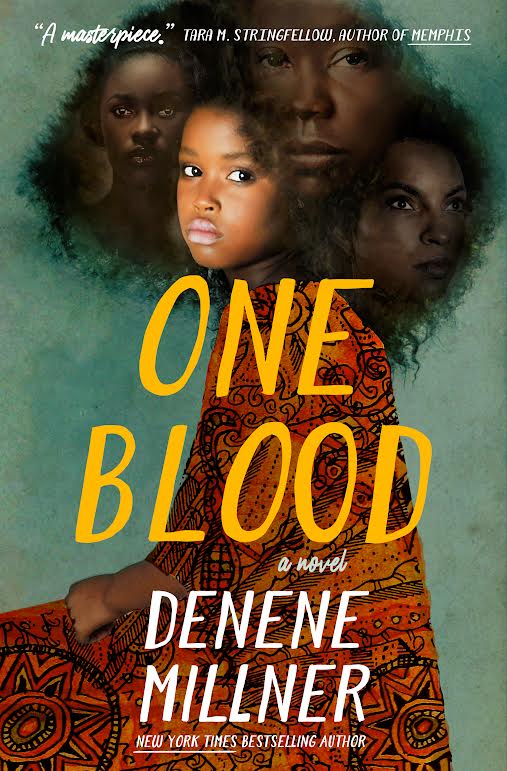
But I understood, too, that I wasn’t necessarily seeing myself [in these books].
When I got older and started to really take account of what my reading materials were, there weren’t a whole lot of books featuring African American children or families that were being put into my hands. As a matter of fact, the first Black book I read was in my freshman year of college, and it was Toni Morrison’s Song of Solomon.
ArtsATL: What was it like for you to finally experience the work of someone like Toni Morrison?
Millner: Oh my gosh. The professor who put Song of Solomon in my hand — I wish I remembered her name so that I could personally thank her, because she introduced me to myself.
I’ll never forget, the week before, we had to read The Great Gatsby. She went around the room asking questions of us, what we got from the story, the larger themes, so we could engage with the work. And she called on me and I was like, “I’m from Long Island, but I don’t understand this. I don’t get it. It doesn’t connect with me. I don’t know who these people are. I don’t care about who these people are.”
I don’t know what was going through me that day, because normally I wouldn’t talk to an instructor that way. But I was just irked by the book. By having yet another book like that shoved in my face and being asked to engage with it and understand it.
The very next week, she put Song of Solomon in our hands. And my God. Just the idea of someone writing about this Black family and this mysticism and this strength and this community. It just made me see myself. There’s just no other way to describe it.
And when I say that, it’s not that my life or my kids or my family were like the characters in the book. It was just that I could relate to it. I understood the language, what they were eating. I understood their feelings. I understood the complications behind the relationships and how they were all funneled through a very specific Black Southern lens.
It just changed my life.
ArtsATL: I feel like this notion of seeing yourself reflected in the books that you’re reading is the throughline of your children’s book imprint, Denene Millner Books. It’s a kind of course correction for what you experienced as a young reader.
Millner: Absolutely, and also what I experienced as a young mother raising babies.
Of course, there was a whole canon of books featuring Black children and families before I had my daughter. I had my first daughter in 1999, and from the moment I realized that she was a girl, I just started funneling all kinds of beautiful things into her closet. Frilly dresses and pretty Mary Jane shoes. I took pictures of our family and created a border on the wall with pictures of our family so that when she looked up, she could see herself. I played music — Earth, Wind & Fire and Lauryn Hill.
But the books were scant. Going to the mainstream bookstores of the time, there were very few offerings there.
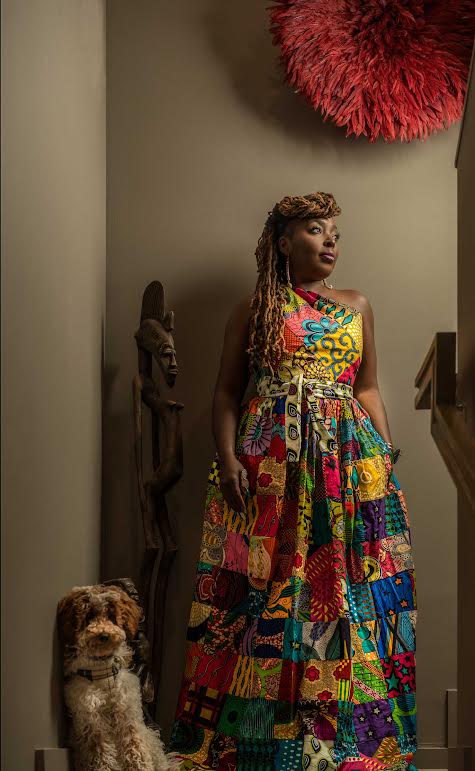
Back then, you had to depend on a bookstore buyer to see the beauty in a book, trust that the audience would find it and then have them put it up on shelves so you could buy it. And there just weren’t any mainstream bookstores that were carrying the kinds of books that I wanted to read to my baby girl. With a lot of them, it was about slavery or the Civil Rights Movement or about Black firsts or some kind of hero in Black history.
But I didn’t wanna read to my kid about slavery before she went to bed at night. I didn’t want to read to her about babies getting bit by dogs to fight for their rights. I wanted to read her stories that reflected her specific life in the here and now. And it was hard to find those books. I mostly found them in Black bookstores.
And then I wanted to write them, and I was having a hard time getting the kinds of children’s books that I wanted to write through the gates. The editors just didn’t understand where I was coming from as a Black woman writing about a Black child’s experience. Because I couldn’t get my books past the gates, I just created my own yard and did my own books.
ArtsATL: Whether it’s a children’s book or a novel like One Blood, what are the most important stories for you to tell?
Millner: I really like books that expose Black people’s humanity, and I specifically focus on the interior lives of Black people, of Black children and families.
With the children’s books, I’m constantly on the lookout for books that speak to the everyday experience of Black children. I don’t mind seeing stories about Harriet Tubman and how she freed slaves. But I’m infinitely more interested in stories about little kids who are experiencing getting on the school bus for the first time, about being afraid of the tooth fairy. Just having a normal, regular day with their mom.
It’s the same thing with my adult books. Particularly with One Blood, it’s a story about motherhood organized around a child who is born to one woman and raised by another. And we’re looking specifically at what kinds of mothers they are, how their love manifests, the relationship they have with their child and what kind of woman they’re looking to raise.
ArtsATL: One Blood is such a lyrical, lush, harrowing, beautiful story.
Millner: I like to think that [in writing this book] I was asking questions of my mom that I wished I could have asked her woman-to-woman.
My mom passed away six weeks after I had my second daughter. My first daughter was only 3, and I was still kind of in the throes of learning how to be a mother.
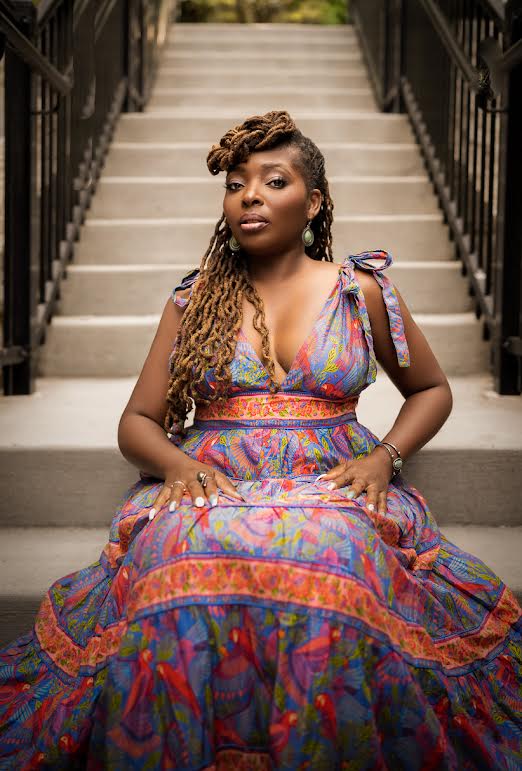
So the idea of having a new kind of relationship with my mom that was rooted more in woman-to-woman rather than mother-to-daughter was new. And then she died. And I didn’t get to ask her all of the questions I wish I could have asked her.
It felt good to try to understand who my mother was and the choices that she made as a woman and a wife and mother — and a Black woman in particular. And I hope that I did the stories of women like her justice.
ArtsATL: I would love to hear how these women, the main characters in the book, revealed themselves to you. How did you go about creating them on the page?
Millner: Well, I am adopted. And like Rae, I found my adoption papers when I was 12. I kept [knowing about] my adoption a secret, because, first of all, I didn’t wanna get in trouble for snooping through my parent’s things. And second, because if it was important to my parents to keep it a secret, then I was OK keeping the secret.
I knew that I wanted to explore my own self through the character of Rae. And I wanted to really explore who I thought my birth mother, in my mind, has always been.
I never had — I still don’t — any specifics on how I came to be given up for adoption, how my parents came to have me, except for very scant details. My dad told me that someone left me on the stoop of an orphanage. That I was found and then four days later, my parents went looking for a girl and found me — took me home. That’s the beginning and ending of my origin story.
So I’ve always wondered about my own birth mother and the circumstances behind how she came to give me up. Was it that she was in an abusive relationship and had to give the baby away to keep me safe? Or was it that she just decided that she couldn’t afford to keep me but that she loved me and wanted to put me into the arms of a family that could take care of me, and so she made that sacrifice? Was it her parents who were like, “Nah, you can’t be a teenage unwed mother, and we’re not raising this baby, so you must give this baby up for adoption?”
All of these different things were running through my head as a child of adoption that I never said out loud. I wanted to explore who my birth mother was by asking these questions. And that’s the story that came to my brain. That’s the story that flowed onto the page.
When I got older and had children of my own, and I started really pulling out of the fog of being a new mom, settling into being a mother, I started figuring out, “You’re not just a mother. You are very much a woman, and that deserves to be honored.” I started remembering what my mother’s life was like, who she was and how little I knew about her. I was raised by this woman. She was alive for 34 years of my life. But I knew nothing about her as a woman.
So, LoLo’s story came to me because I had those questions for my own mother that I can’t ask her because she’s gone. I wanted to know what it was like to be this Black woman in the ’60s, and ’70s and ’80s who is married, who lives a regular life, who is a working class citizen of America. She is invisible to pop culture because she’s not marching in the streets as a Civil Rights activist. She’s not a celebrity. She’s not in trouble. She’s just a regular Black woman. But that regular Black woman deserves a spotlight.
ArtsATL: This is such an embodied story, written in such visceral language. It’s a felt experience for the reader. But there’s a kind of storytelling magic in it, too, that you can sense almost. Can you speak about that?
Millner: There were times when I would sit and write for literally hours — my head would be in the computer, and then I would pull back. I’d sit and I’d read over the pages, like, “Oh, wow. I’m not sure where that came from or how I managed to put that on the page — but I’m grateful for it.”
I’m a firm believer that I am surrounded by my ancestors, particularly my mothers. And I really do feel like they were guiding my hands when I was writing this story. There are things that are of my imagination, but from a recess that I couldn’t necessarily access without the care and guidance and love of the women who are of my life, or who have played a part in my life, who are no longer physically here.
ArtsATL: Did you feel like a different person at the end of writing this book than when you started? Did traveling through time with these characters help you reconcile anything about your own story or your own feelings about mothering and being mothered?
Millner: Most definitely. While I was doing research for One Blood, I actually found my birth mother. Literally found my birth mom.
One night, I just Googled, “What was it like to be an unwed teenage mother in 1968?” That’s when I was born. And I kept coming across these message boards for Booth Babies. And I was like, “What are Booth Babies?”
I kept seeing, “I was born in Booth Memorial Hospital in Louisiana in 1960-whatever, and I’m looking for my mother,” or “I gave birth to a baby boy at Booth Memorial Hospital in Pennsylvania in 1950-whatever. If you are looking for your mother, I am here.”
It was a bunch of adopted kids and birth mothers looking for each other.
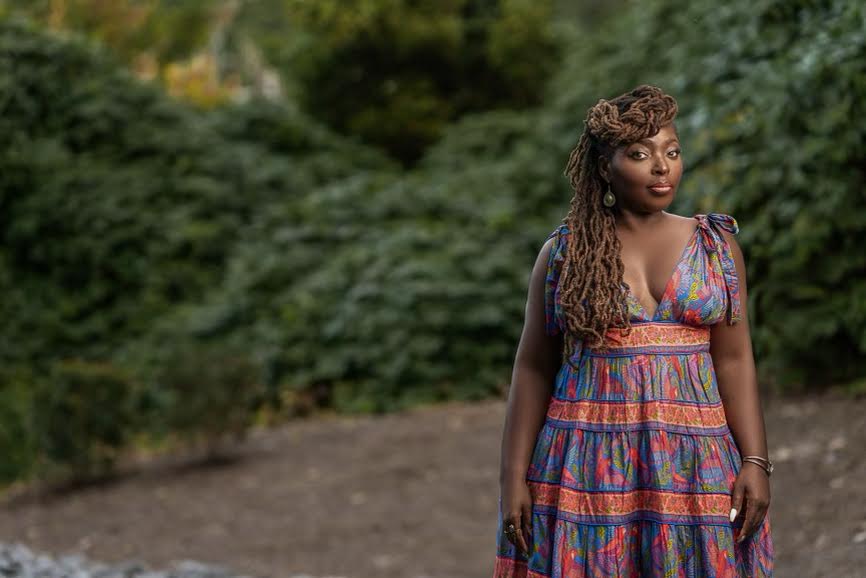
I was born at Booth Memorial Hospital. My abbreviated birth certificate had me born at Booth Memorial Hospital in 1968 in Flushing, Queens. Now it’s called Queens Hospital, and I thought it was just a hospital that, maybe after they found me, they took me to this hospital to have me checked out, guesstimated when my birthday was and then created a birth certificate with my parents’ name on it. That’s what [I thought] for my entire life, until last year. I didn’t even know if my birthday was my birthday.
So I’m looking at these message boards and realizing for the first time that the hospital I was born in wasn’t a hospital at all. That it was actually a home for unwed mothers run by the Salvation Army, and they had them all across the country. These hospitals were created to support single moms, and then at some point after World War II, they became homes for “wayward women” who needed to give their babies up so that their babies wouldn’t be considered bastards, and they wouldn’t be regarded by society as whores because they had these children out of wedlock.
There were some 2 million kids who were separated from their mothers in this way because they were single and didn’t have husbands. It’s called the Baby Scoop Era, and I am a product of the Baby Scoop Era. And that night, I figured out that I was most likely taken from my mom.
I kept digging over the months, and found out that if you are adopted and you know the day that you were born and the hospital that you were born in, [in New York] you have the right to your full birth certificate. You just send them the information and like, 20 bucks for mailing, and they will send you your full birth certificate.
So I wrote away for my full birth certificate and got it two weeks later, got all of this identifying information about myself and my birth mother. Her name was so distinctive — I found her through her father’s name, which was also really distinctive. It had her full birth name and her age and her hometown and then where she lived at the time when she had me.
It turns out she passed away in 2017 but that she lived and she died in Snellville, which is where I moved when I moved from up North to Georgia. When I moved my family, when we left New York and came down to Georgia, we lived in Snellville for eight years.
So this woman could have been sitting next to me in a church pew. She could have been behind me at the Chick-fil-A. She could have been shopping at the same Kroger as me, and I didn’t know it. We were right there in the same random community until she passed away in 2017.
It just threw my entire world into a tailspin. My mother was here. And the way that I looked at adoptions, specifically my adoption, completely transformed. Because up until the moment I started looking for her, I didn’t care who she was. I didn’t care who my birth family was, because, as far as I was concerned, I have parents, I have a family. I am a part of the fabric of the Millner clan. And there is nothing that could change that. To me, I am a Millner. Period.
But after I found my birth mother, I realized that my life can make space for my parents, and my parent of origin. That it’s OK to mourn my separation from my birth mom and also be happy about, grateful for and love the family that I ultimately became a part of.
So, yes. Heck yes. By the end of the book, I was looking at my own adoption differently. I was looking at my own relationship with my mother differently. I was looking at my birth mother differently, and I was looking at myself differently.
I think the character of Rae celebrates the kind of mom that I chose to be to my own daughters, and I was happy to pour that onto the page.
::
Beth Ward is an Atlanta-based writer and editor. Her work has appeared in numerous publications, including The Rumpus, Hyperallergic, Atlas Obscura, BUST magazine, The Bitter Southerner, Atlanta magazine and Burnaway. Learn more about her work at www.bethwardwriting.com.

